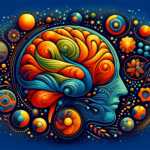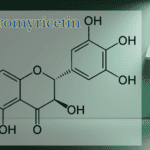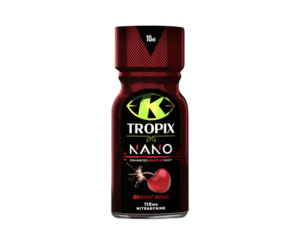Brain-Derived Neurotrophic Factor (BDNF) is a protein in the human brain that supports the growth and maintenance of neurons.
It is considered a neurotrophin, capable of generating new brain cells through a process known as neurogenesis.
It is a critical factor for optimizing memory, learning, and overall cognition. Without BDNF, your brain would not be able to create new neural pathways or heal itself.
Because of this, BDNF affects nearly every aspect of mental function in some way.1Brain-derived neurotrophic factor, Wikipedia. 2019
BDNF is very important for brain health and function, but it cannot be taken directly. However, you may be able to increase BDNF indirectly by taking certain nootropic supplements such as:
It’s also important to realize that you can encourage BDNF levels through regular exercise, proper sleep, meditation, and getting enough sun exposure.
In fact, these are probably the best ways to holistically encourage this important growth factor.
BDNF levels naturally decline as you age, which can lead to neurological degeneration.
It is important to maintain proper levels of this protein to ensure your brain can regenerate and stay healthy.2Kirk I. Erickson, et al. Brain-Derived Neurotrophic Factor Is Associated with Age-Related Decline in Hippocampal Volume, J Neurosci. 2010
Biohack Your Brainpower
What Does BDNF Do In The Brain?
BDNF regulates several crucial aspects of brain activity by encouraging the growth and proper maintenance of neurons.
Learning And Memory

Over the past few decades, researchers have become more and more aware of BDNF’s role in memory.
BDNF regulates synaptogenesis and synaptic plasticity, which are major factors in Long-Term Potentiation (LTP). LTP is the process by which new information is stored in the brain.3Holtmaat A, Svoboda K. Experience-dependent structural synaptic plasticity in the mammalian brain Nat Rev Neurosci. 2009
By allowing the brain to physically grow new connections, BDNF plays a huge role in creating new memories.4Carla Cunha, Riccardo Brambilla, and Kerrie L. Thomas. A Simple Role for BDNF in Learning and Memory? Front Mol Neurosci. 2010
Energy And Metabolism
BDNF also has a central role in energy metabolism and cellular respiration.5Markham A, et al. Brain-derived neurotrophic factor-mediated effects on mitochondrial respiratory coupling and neuroprotection share the same molecular signalling pathways Eur J Neurosci. 2012
BDNF has a widespread effect on regulating energy homeostasis in the body.
It helps regulate patterns of eating and physical activity. Your body requires BDNF to suppress appetite and avoid overeating.
In one trial, mice that had their BDNF levels lowered were found to overeat and gain significantly more weight than their counterparts.6Unger TJ, et al. Selective deletion of Bdnf in the ventromedial and dorsomedial hypothalamus of adult mice results in hyperphagic behavior and obesity J Neurosci. 2007
It is also important for modulating glucose metabolism, which is a crucial aspect of regulating energy levels.
Glucose is a major source of fuel for cells, so maintaining proper levels can have a huge impact on overall energy.
BDNF mediates the beneficial effects of vigorous exercise and fasting on cognition, mood, cardiovascular function, and metabolism.
By stimulating glucose transport and mitochondrial biogenesis, BDNF increases intercellular energy. It also protects neurons against injury and disease.
Research also indicates that BDNF increases insulin sensitivity, supporting a healthy metabolism.
People with lower levels of BDNF due to genetics, sedentary lifestyle, and chronic stress may be at a greater risk for metabolic syndromes.7Marosi K, Mattson MP. BDNF mediates adaptive brain and body responses to energetic challenges Trends Endocrinol Metab. 2014
How Does BDNF Affect Depression?

BDNF is also heavily tied to mood and emotion.
Researchers have found lower levels of BDNF in the prefrontal cortex and hippocampus, structures that are heavily implicated in depression.
They’ve also seen a decrease in BDNF levels in the blood of subjects with depression.8Vaishnav Krishnan and Eric J. Nestler. The molecular neurobiology of depression Nature. 2008
Some humans are born with a gene that reduces BDNF production. Carriers of this gene are at increased risk for depression.
They also have reduced episodic memory and executive function, as well as reduced hippocampal volume.9Gatt JM, et al. Interactions between BDNF Val66Met polymorphism and early life stress predict brain and arousal pathways to syndromal depression and anxiety Mol Psychiatry. 2009
How BDNF Works

BDNF is a protein that is encoded by the BDNF gene found on the 11th chromosome.10K R Jones and L F Reichardt. Molecular cloning of a human gene that is a member of the nerve growth factor family Proc Natl Acad Sci U S A. 1990
When BDNF is released, it binds onto two sites, the TrkB and LNGFR (low-affinity nerve growth factor) receptors.
TrkB receptors modulate neural plasticity and are critical for short term memory formation. It is not quite as clear how BDNF interacts with LNGFR.11Ardem Patapoutiana, Louis FReichardt. Trk receptors: mediators of neurotrophin actionCurrent Opinion in Neurobiology, 2001
It also modulates the NMDA receptor function, which is a critical aspect of memory formation as well.
It seems to be an important factor in regulating the activity of this system through its action on glutamate.12Makoto Mizuno, et al. Involvement of BDNF Receptor TrkB in Spatial Memory Formation Learn Mem. 2003 13KuoWu. Brain-derived neurotrophic factor acutely enhances tyrosine phosphorylation of the AMPA receptor subunit GluR1 via NMDA receptor-dependent mechanisms Molecular Brain Research. 2004
When BDNF is present, it promotes synaptogenesis, creating new synaptic connections while pruning old connections.
It does this by up-regulating protein kinase C (PKC), which results in greater dendrite growth.14Ewa Bednarek, Pico Caroni. β-Adducin Is Required for Stable Assembly of New Synapses and Improved Memory upon Environmental Enrichment Neuron. 2011
BDNF can improve the rate of cellular survival when it is present, which is an important factor in overall brain health.
In fact, BDNF is critical for the survival of the central nervous system. In rat and human studies where BDNF activity was suppressed, researchers saw physical degradation in the hippocampus.15Kirk I. Erickson, et al. Brain-Derived Neurotrophic Factor Is Associated with Age-Related Decline in Hippocampal Volume J Neurosci. 2010
What Stimulates BDNF?
You cannot take BDNF directly as a supplement, but there are several nootropic supplements that may encourage its production. These include:
Exercise, meditation, and sleep all play a factor in proper BDNF levels as well.
- 1Brain-derived neurotrophic factor, Wikipedia. 2019
- 2Kirk I. Erickson, et al. Brain-Derived Neurotrophic Factor Is Associated with Age-Related Decline in Hippocampal Volume, J Neurosci. 2010
- 3Holtmaat A, Svoboda K. Experience-dependent structural synaptic plasticity in the mammalian brain Nat Rev Neurosci. 2009
- 4Carla Cunha, Riccardo Brambilla, and Kerrie L. Thomas. A Simple Role for BDNF in Learning and Memory? Front Mol Neurosci. 2010
- 5Markham A, et al. Brain-derived neurotrophic factor-mediated effects on mitochondrial respiratory coupling and neuroprotection share the same molecular signalling pathways Eur J Neurosci. 2012
- 6Unger TJ, et al. Selective deletion of Bdnf in the ventromedial and dorsomedial hypothalamus of adult mice results in hyperphagic behavior and obesity J Neurosci. 2007
- 7Marosi K, Mattson MP. BDNF mediates adaptive brain and body responses to energetic challenges Trends Endocrinol Metab. 2014
- 8Vaishnav Krishnan and Eric J. Nestler. The molecular neurobiology of depression Nature. 2008
- 9Gatt JM, et al. Interactions between BDNF Val66Met polymorphism and early life stress predict brain and arousal pathways to syndromal depression and anxiety Mol Psychiatry. 2009
- 10K R Jones and L F Reichardt. Molecular cloning of a human gene that is a member of the nerve growth factor family Proc Natl Acad Sci U S A. 1990
- 11Ardem Patapoutiana, Louis FReichardt. Trk receptors: mediators of neurotrophin actionCurrent Opinion in Neurobiology, 2001
- 12Makoto Mizuno, et al. Involvement of BDNF Receptor TrkB in Spatial Memory Formation Learn Mem. 2003
- 13KuoWu. Brain-derived neurotrophic factor acutely enhances tyrosine phosphorylation of the AMPA receptor subunit GluR1 via NMDA receptor-dependent mechanisms Molecular Brain Research. 2004
- 14Ewa Bednarek, Pico Caroni. β-Adducin Is Required for Stable Assembly of New Synapses and Improved Memory upon Environmental Enrichment Neuron. 2011
- 15Kirk I. Erickson, et al. Brain-Derived Neurotrophic Factor Is Associated with Age-Related Decline in Hippocampal Volume J Neurosci. 2010













